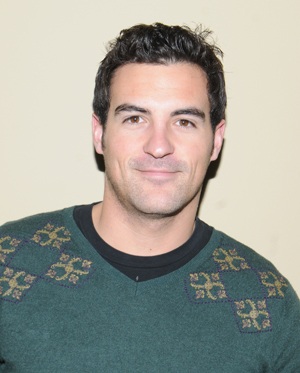The word freedom has been on my mind lately. Perhaps it has to do with regular visits to McDonald’s over the last few weeks to take the franchise up on their no-strings-attached offer of free caffeine.
I wasn’t the only one. Many Central Albertans, unable to pass on a deal, flocked to the food chain. Line-ups for free coffee suddenly rivalled the health care system’s wait times, though no one seemed to complain.
There’s been intense media coverage lately on the public comments and subsequent sacking of former Alberta Health Services CEO Stephen Duckett. Putting a modern-day Albertan spin on Marie Antoinette’s historic statement, Duckett infamously talked about dessert when the public was starving to discuss something entirely different.
Health care professionals, politicians, and concerned citizens will continue to talk about the wrongs and rights of the health care system and should.
What strikes me about the incident is I look at it as the freedom we have as Albertans to engage in the discussion.
It is this individual’s right to speak, to raise our concerns and have our voice heard, that has especially stood out to me over the last few days. Look how quickly, for instance, the voices of people can influence government.
Duckett’s personal choice to answer reporters as he did illustrates that with the freedom to speak comes responsibility. Two impromptu minutes of free speech rightly or wrongly changed the former CEO’s career.
As the dust settles or continues to be raised over health care issues in Alberta, we might all do well to look to another place in the world where free speech is in rare supply.
The recent release of long-time political prisoner Aung San Suu Kyi in Burma last month illustrates not only the power of freedom, but also the power of a voice used with sober measure.
Within hours of her release Ms. Suu Kyi vocally challenged the ruling military government responsible for her house arrest over the last seven years. Knowing full well her words might compromise her personal freedom again, Ms. Suu Kyi spoke with no hatred or flippancy.
Instead she called for national reconciliation and for all sides in Burma to talk reasonably with each other to create acceptable solutions for everyone. Reports indicated hundreds of Burmese flocked to get a glimpse of the woman and to hear her words as they resonated across that country and the world.
As I followed the story, I thought in particular of the Burmese refugees I met with last year in Malaysia. There to work on a publication about their plight, I heard refugees recount stories of punishment much worse than Aung San Suu Kyi’s.
At the hand of the same government, they spoke of their torture, imprisonment, and forced portering for the military. To experience freedom they had to flee their country and even now only experience freedom in a limited sense.
Knowing full well the brutality of the authorities to her people, Aung San Suu Kyi called for a non-violent revolution, saying, “If you want democracy you have got to be prepared to accept the responsibilities of democracy.” For her this includes reasonable and respectful words, no matter who the opponent may be.
Truly we should be sobered by what she said, and imagine ways to similarly engage in the public discourse, whatever the issue.
Let Duckett eat his cookie and let him swallow it whole. And let us all learn the lesson he learned the hard way: we can say what we want, but there are consequences for the words we use and how we use them.
Though she faces more than a health care crisis, it’s a lesson Aung San Suu Kyi knows full well. She uses her words wisely and we should too, not taking for granted our freedom.
For, when free speech is wielded so, it is a powerful thing that can thunder across the world.



